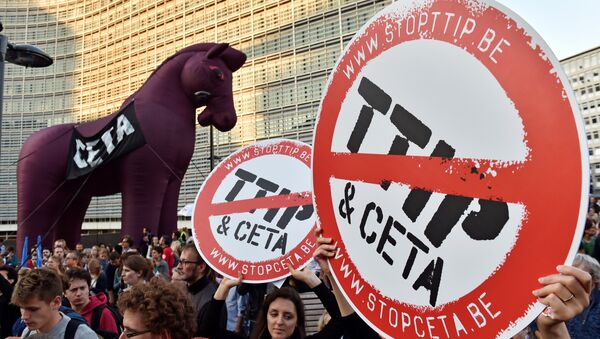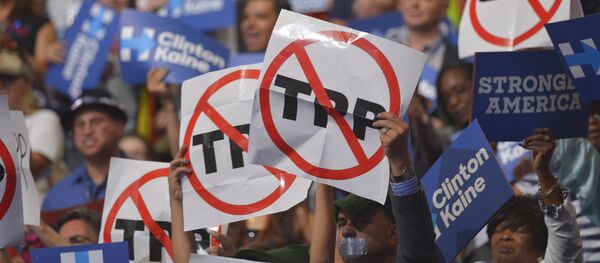"The agreement with Europe … is deeper and more comprehensive and will promote green technology, information cooperation and investment flows. But it has been plagued by divisions since the very beginning, specifically over investor protections, copyright, intellectual property, market access," Stadnik said, adding the TTIP looked like more work than TPP.
"The future of this agreement [TTIP] depends on the US stance. The US will seek to defend its own interests, which according to Trump is protecting its producers, boosting production within the US and bringing back manufacturing jobs," the envoy continued.
Trade protection, which seeks to curb imports or promote exports by imposing barriers to trade, is strongly supported by US President-elect Trump, who pledged to opt out of all free trade agreements under discussion and impose tariffs on imports from China and Mexico.


